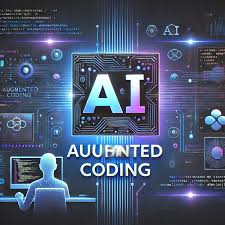AI coding tools slow down experienced developers, study finds
Too Much Help? AI Coding Tools May Hinder, Not Help, Experienced Developers
A new wave of research is casting a critical eye on the use of AI powered coding assistants, revealing that while these tools offer speed and support to beginners, they may be slowing down or even hindering experienced developers. The findings challenge the popular belief that AI coding tools like GitHub Copilot, Amazon CodeWhisperer, and similar systems always boost productivity. Instead, the results suggest that the more seasoned a developer is, the more likely they are to second guess, override, or ignore AI generated code ultimately costing them time and focus.
The recent study, conducted by a team of researchers from Stanford University and a European software institute, found that senior developers often spend more time reviewing and editing AI generated code than they would have spent writing it from scratch. In controlled experiments where developers were tasked with completing a series of programming challenges, those using AI assistants sometimes took longer and produced less optimal code compared to those working without AI help. This effect was especially pronounced when developers were working in languages or libraries they were already fluent in.
One of the key insights from the research is the mismatch between how AI tools are trained and how professional developers work. Most AI coding assistants are trained on large volumes of open source code and optimized for pattern matching and autocomplete functionality. While this is helpful in suggesting common boilerplate or syntax, it often lacks the nuance and context specific understanding that experienced engineers rely on. “These tools are great at writing average code quickly,” said Dr. Elena Ramirez, one of the study’s co authors. “But expert developers aren’t trying to write average code they’re trying to write the right code for complex, evolving systems.”
Another challenge highlighted by the study is the issue of cognitive overhead. When experienced developers are presented with an AI generated solution, they instinctively evaluate it for correctness, security, performance, and maintainability. This evaluation process can be mentally taxing and time consuming. Rather than speeding up development, it introduces a layer of uncertainty. Developers must constantly ask themselves, “Is this code safe to use?” or “Does this align with our project’s architecture?” In many cases, participants reported rewriting or reworking AI generated code to better suit the intended logic or style of their application.
This doesn’t mean that AI coding tools are inherently bad far from it. For junior developers or those entering new codebases or unfamiliar languages, AI assistants can provide valuable scaffolding. They serve as a kind of smart autocomplete on steroids, helping to fill in gaps in knowledge and reduce the intimidation factor of writing production level code. The study notes a marked increase in confidence and completion rates among early career developers who used AI tools, particularly when faced with new syntax or common design patterns.
The implications of these findings extend beyond individual productivity. For teams relying heavily on AI generated code, there are questions about code quality, consistency, and long term maintainability. Some engineering leads worry that an overreliance on AI tools could dilute best practices or create blind spots in system architecture. Others express concern about "trust decay," where developers begin to question the accuracy of their tools, leading to slower workflows and an erosion of creative confidence.
Big tech companies behind these tools are paying attention. GitHub, for instance, has announced improvements in Copilot’s contextual awareness and customization, aiming to make suggestions more relevant to specific codebases and developer preferences. Other platforms are experimenting with feedback loops that allow users to train the assistant on their own style guides or internal libraries. Still, the question remains can AI truly “understand” the deeper layers of software engineering, or is it destined to remain a smart but superficial helper?
One of the more surprising outcomes of the research was its psychological dimension. Developers with more years of experience reported higher stress levels when AI tools inserted suggestions too frequently or offered subpar recommendations. Rather than boosting creativity or freeing them from repetitive tasks, the tools created friction especially for developers used to having complete control over their coding environment. “It’s like a backseat driver with a spotty memory,” one participant joked. “You appreciate the help, but sometimes you just want it to stop talking.”
As artificial intelligence continues to reshape the development landscape, the conversation around AI coding tools is becoming more nuanced. There’s growing recognition that these systems are not one size fits all solutions. Their utility depends heavily on context the experience level of the developer, the complexity of the task, and the constraints of the project. Moving forward, developers and toolmakers alike will need to collaborate more closely to strike the right balance between automation and human judgment.
In conclusion, while AI coding assistants represent a remarkable leap in software tooling, their real world impact varies widely. For novices, they offer a faster on ramp into programming. For experts, however, they can introduce new layers of friction and distraction. The challenge now is to refine these tools so they augment human expertise rather than undermine it. As with any tool, the key lies in using it wisely and knowing when to turn it off.





 Severe Thunderstorms Disrupt Life Across Northeast India
Severe Thunderstorms Disrupt Life Across Northeast India  Youth Parliament Sessions Expanded Nationwide to Boost Democratic Participation
Youth Parliament Sessions Expanded Nationwide to Boost Democratic Participation  India Joins Global Climate Accord
India Joins Global Climate Accord  India Launches ₹10,000 Crore Tech Innovation Fund to Back Deep Tech Startups and AI Labs
India Launches ₹10,000 Crore Tech Innovation Fund to Back Deep Tech Startups and AI Labs  Stevens Point, Wisconsin tests emergency sirens as part of planned upgrade maintenance
Stevens Point, Wisconsin tests emergency sirens as part of planned upgrade maintenance